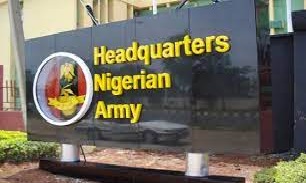In another development, the Nigerian Army yesterday denied allegations that it freed soldiers of northern extraction accused of murder, while soldiers of southern extraction also involved in the same case were kept in detention.
According to the Army, a Military Court Martial set up to try all the soldiers indicted in the case, was composed of 60 per cent of officers from the southern part of the country.
Two Nigerian soldiers who were being court-martialled in the 82 Division of the Nigerian Army for murder were reportedly freed and re-absorbed into service.
The two soldiers are Private Usman Shonva and another identified only as Audu.
While Shonva allegedly shot and killed one of his coursemates in Ohafia, Abia State in 2022, Audu was accused of killing a Togolese national and one other person in Anambra State
But the Nigerian Army argued that the allegations that the decision of the court was skewed in favour of the soldiers from northern extraction were unfounded.
A separate statement by the Director of Army Public Relations, Major Gen Nwachukwu said the Nigerian Army is a professional organisation, which does not bring ethnicity or religion into its decision-making process but acts on facts and evidence.
The statement reads: “Notably, the composition of the Court Martial was not based on regional representation, rather, the membership of the court was diverse, with personnel drawn from various regions of the country.
“It is exigent to note that the President of the Court Martial is of northern extraction, while the Judge Advocate is from the South.
“Additionally, 60 per cent of the Court Martial members are of southern extraction, demonstrating a fair and balanced representation, even though religion and ethnicity are not major focal criteria in the decision-making process of the NA.
“The decision of a Court Martial is collective and based on evidence presented during the trial.
“The said Court Martial tried the personnel, irrespective of their ethnic and religious affiliations, and the outcome was determined strictly based on the evidence presented.
It said that: “In espousing the position of the NA in the cases mentioned in the report, taking that of Private Usman Shonva for instance, evidence revealed that there were other soldiers at the scene of the incident, who also fired their weapons.
“Hence, the court, based on this finding among others, concluded that the shot that killed the dead soldier could have been fired by any of the soldiers at the scene, thus, leading to his discharge and acquittal.
“It must be emphasised that the NA does not task its personnel (including for court martial membership) on a regional basis to achieve ‘national spread’.
“The NA is a composite national institution and not an ethnic militia.”

























